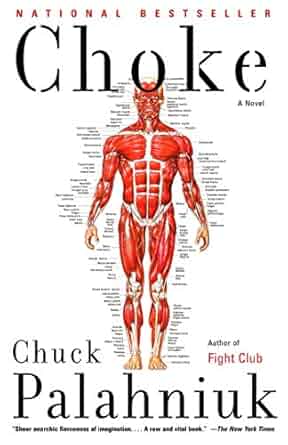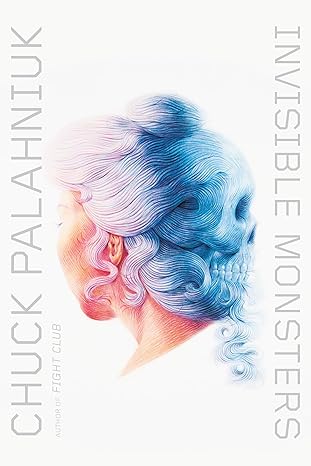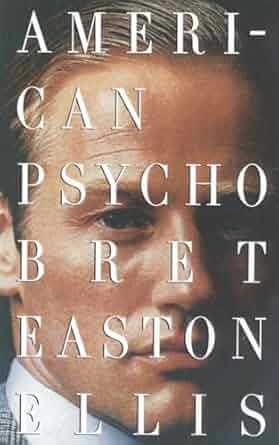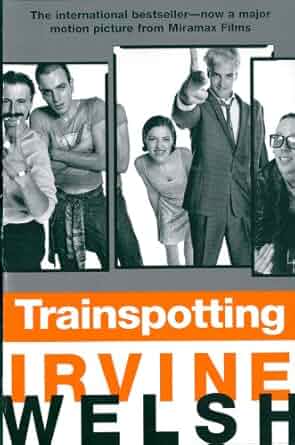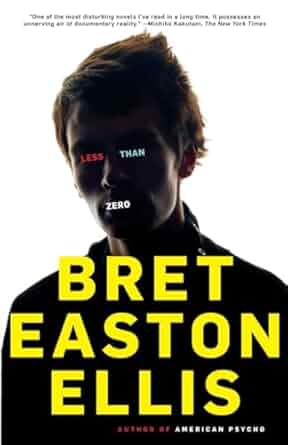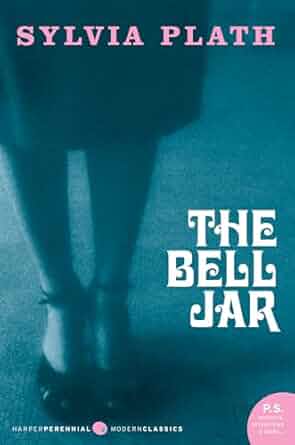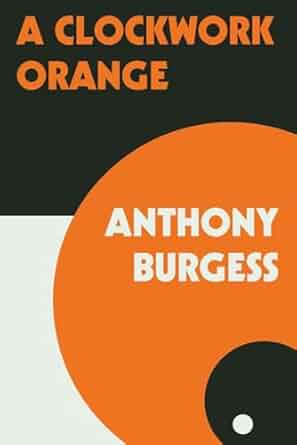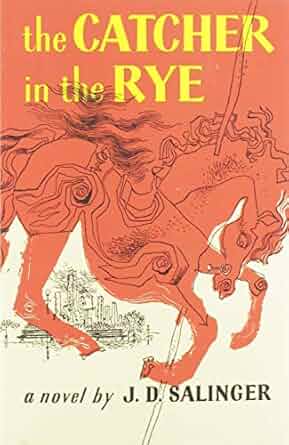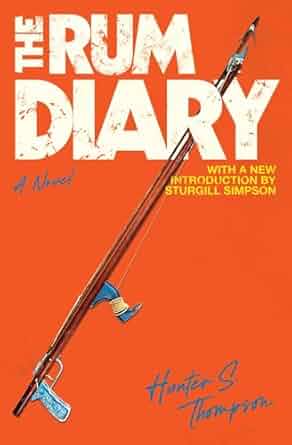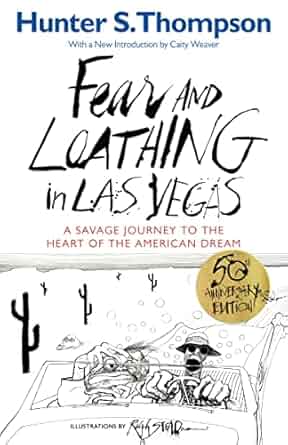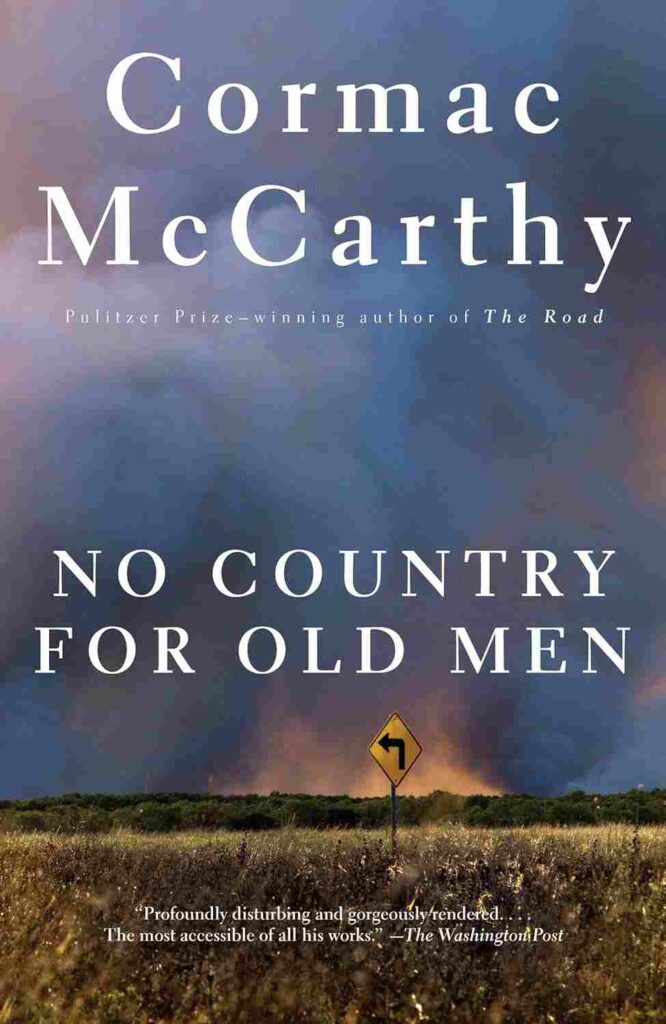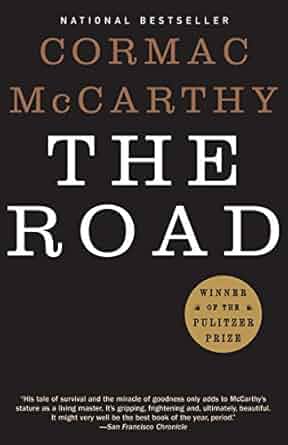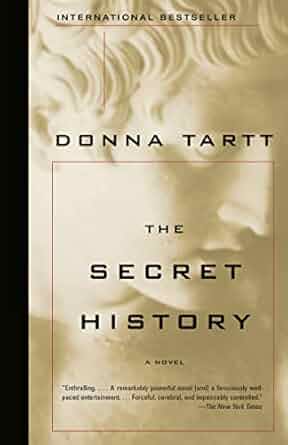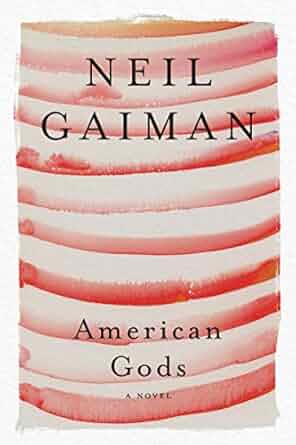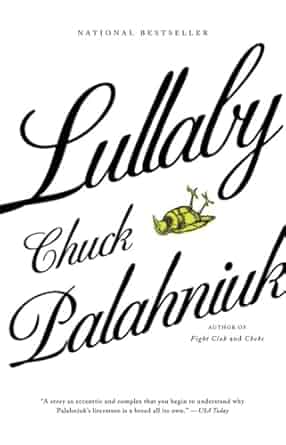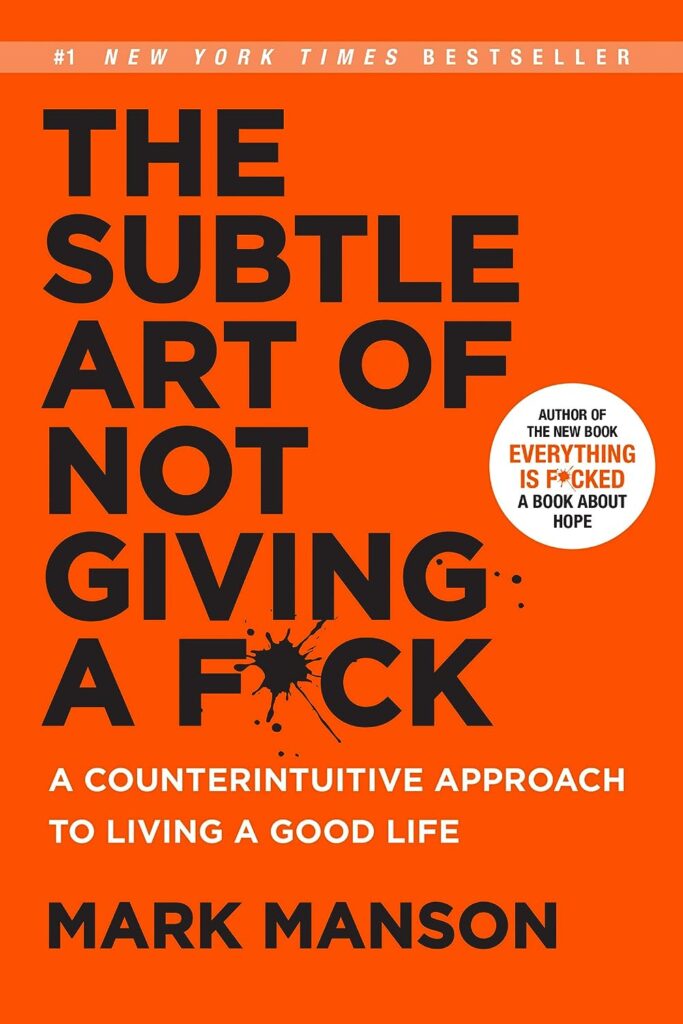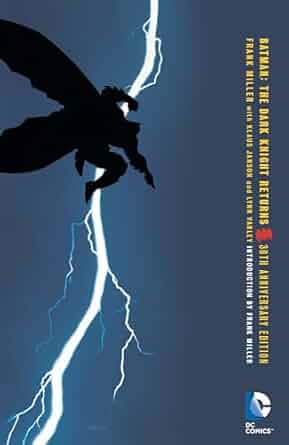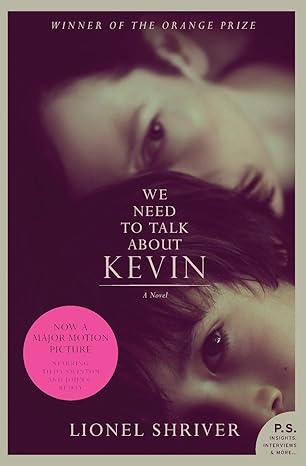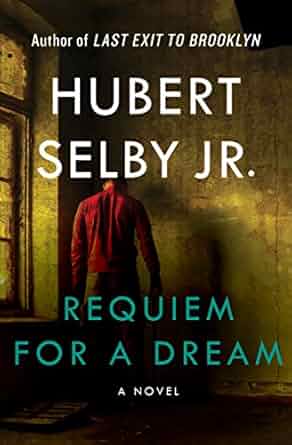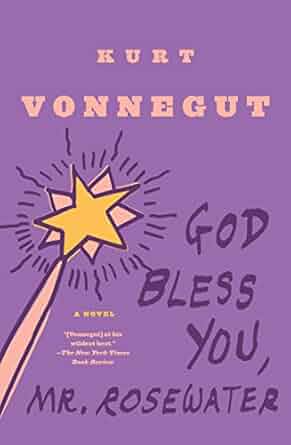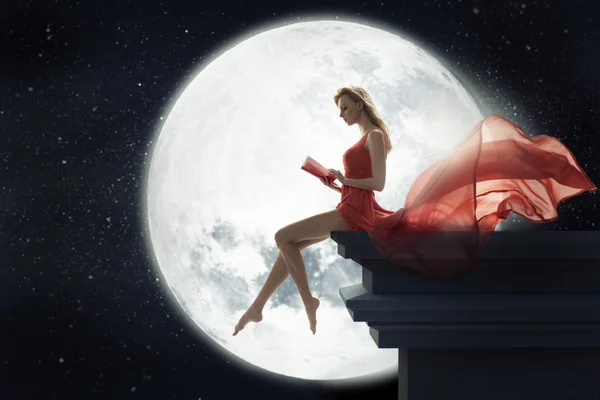Summary: In today's article, I’ve compiled 20 of the best books similar to Fight Club that will challenge your views and dive into the chaos of modern life. My top 3:
- Choke by Chuck Palahniuk
- Invisible Monsters by Chuck Palahniuk
- American Psycho by Bret Easton Ellis
Books like Fight Club explore the darker side of identity, alienation, and modern life. They challenge societal norms and offer a raw, thought-provoking look at the struggles people face today. Gritty and intense, these books push readers to confront uncomfortable truths and rethink their views on life.
TOP 20: Best Books Similar to Fight Club
- Choke by Chuck Palahniuk
- Invisible Monsters by Chuck Palahniuk
- American Psycho by Bret Easton Ellis
- Trainspotting by Irvine Welsh
- Less Than Zero by Bret Easton Ellis
- The Bell Jar by Sylvia Plath
- A Clockwork Orange by Anthony Burgess
- The Catcher in the Rye by J.D. Salinger
- The Rum Diary by Hunter S. Thompson
- Fear and Loathing in Las Vegas by Hunter S. Thompson
- No Country for Old Men by Cormac McCarthy
- The Road by Cormac McCarthy
- The Secret History by Donna Tartt
- American Gods by Neil Gaiman
- Lullaby by Chuck Palahniuk
- The Subtle Art of Not Giving a F*ck by Mark Manson
- The Dark Knight Returns by Frank Miller
- We Need to Talk About Kevin by Lionel Shriver
- Requiem for a Dream by Hubert Selby Jr.
- God Bless You, Mr. Rosewater by Kurt Vonnegut
1. Choke
- Author: Chuck Palahniuk
- About: This dark comedy explores the life of Victor Mancini, a man who pretends to choke in restaurants to scam people into “rescuing” him, all while struggling with his own identity and a broken relationship with his mother.
- Style of Writing: Raw, cynical, and fast-paced. Palahniuk's writing is often fragmented, with dark humor and satirical observations about modern society.
- Length: Approx. 70,000 words
- Year Written: 2001
- Emotional Impact: It leaves a lasting impression due to its exploration of human flaws, addiction, and desperation. The unconventional narrative makes it hard to forget.
- Difficulty Level: Medium. The writing style can be jarring and uncomfortable but is not overly complex.
- Why Read It: To explore themes of identity, self-destruction, and societal disillusionment through dark humor and shock value.
2. Invisible Monsters
- Author: Chuck Palahniuk
- About: A disfigured woman embarks on a journey of self-discovery and reinvention after a tragic accident, exploring themes of body image, consumerism, and identity.
- Style of Writing: Surreal, fragmented, and often disorienting. Palahniuk's writing is known for its shocking twists and unapologetic portrayal of human flaws.
- Length: Approx. 70,000 words
- Year Written: 1999
- Emotional Impact: The book challenges traditional notions of beauty and self-worth, leaving readers questioning their perceptions of the world and themselves.
- Difficulty Level: Medium. The nonlinear storytelling might be confusing at first but becomes rewarding.
- Why Read It: To confront uncomfortable truths about modern beauty standards, identity, and the meaning of self-worth.
3. American Psycho
- Author: Bret Easton Ellis
- About: The novel follows Patrick Bateman, a wealthy New York City investment banker who leads a double life as a serial killer. The story critiques consumerism, excess, and the detachment of modern society.
- Style of Writing: Cold, detached, and precise. Ellis uses an unreliable narrator, combining graphic violence with sharp social critique.
- Length: Approx. 100,000 words
- Year Written: 1991
- Emotional Impact: The extreme violence and the emotional emptiness of the protagonist leave a lasting impact, often leaving readers disturbed and unsettled.
- Difficulty Level: High. The graphic content and deep psychological analysis can be difficult to process.
- Why Read It: To explore the moral decay of consumer culture, identity, and the dark side of wealth and privilege.
4. Trainspotting
- Author: Irvine Welsh
- About: This novel follows a group of heroin addicts in Edinburgh as they struggle with addiction, crime, and the grim realities of life. It’s a raw portrayal of youth culture and disillusionment.
- Style of Writing: Gritty and dialect-heavy, capturing the voices of the characters in a very raw, unfiltered way.
- Length: Approx. 100,000 words
- Year Written: 1993
- Emotional Impact: It leaves a strong impression due to its unflinching portrayal of addiction, friendship, and despair.
- Difficulty Level: Medium. The heavy dialect and chaotic structure might be challenging for some readers.
- Why Read It: To witness a brutal, realistic portrayal of addiction, friendship, and the struggle for meaning in a hopeless world.
5. Less Than Zero
- Author: Bret Easton Ellis
- About: The story follows Clay, a college student who returns to Los Angeles during Christmas break to find his friends trapped in a world of excess, drugs, and indifference.
- Style of Writing: Minimalist and detached. Ellis uses a detached, almost clinical tone to describe the hollow lives of his characters.
- Length: Approx. 65,000 words
- Year Written: 1985
- Emotional Impact: The nihilism and lack of emotional depth in the characters create a cold, numbing feeling that resonates long after finishing the book.
- Difficulty Level: Medium. The minimalist writing style may seem distant but effectively conveys the themes of detachment and disillusionment.
- Why Read It: To explore the emptiness of wealth and excess, and the alienation experienced by the younger generation in the 1980s.
6. The Bell Jar
- Author: Sylvia Plath
- About: This semi-autobiographical novel follows Esther Greenwood, a young woman who struggles with mental illness and the pressures of societal expectations in the 1950s.
- Style of Writing: Lyrical, introspective, and deeply emotional. Plath’s writing is both poetic and harrowing.
- Length: Approx. 75,000 words
- Year Written: 1963
- Emotional Impact: It profoundly impacts readers with its honest portrayal of mental illness, despair, and the pressure to conform.
- Difficulty Level: Medium. The novel’s introspective nature can be intense but accessible.
- Why Read It: To understand the complexities of mental illness and the struggle for self-identity in a world of expectations.
7. A Clockwork Orange
- Author: Anthony Burgess
- About: Set in a dystopian future, the novel follows Alex, a delinquent teenager, as he undergoes a controversial form of behavioral conditioning that strips him of free will.
- Style of Writing: Inventive and rich with slang (“Nadsat”). Burgess creates a unique language to reflect the protagonist’s world.
- Length: Approx. 50,000 words
- Year Written: 1962
- Emotional Impact: The moral questions surrounding free will and the use of violence leave a strong, lasting impression.
- Difficulty Level: High. The invented slang can be challenging, but it adds to the unique world-building.
- Why Read It: To explore the ethics of free will, violence, and control in a bleak, dystopian society.
8. The Catcher in the Rye
- Author: J.D. Salinger
- About: The novel follows Holden Caulfield, a disillusioned teenager who has just been expelled from prep school. He roams New York City, reflecting on his cynicism and struggles with growing up.
- Style of Writing: First-person narrative with an informal, conversational tone. Holden’s voice is distinct and deeply introspective.
- Length: Approx. 73,000 words
- Year Written: 1951
- Emotional Impact: The book resonates deeply with readers due to its honest portrayal of adolescent alienation, mental health struggles, and the pain of growing up.
- Difficulty Level: Low. The straightforward writing style makes it easy to read, though its emotional depth is significant.
- Why Read It: To explore the feelings of alienation, disillusionment, and identity that many young people experience.
9. The Rum Diary
- Author: Hunter S. Thompson
- About: Set in Puerto Rico, the novel follows the experiences of a young journalist, Paul Kemp, who is caught up in the chaos of the local expatriate scene and the corruption around him.
- Style of Writing: Gonzo journalism, blending fact and fiction with a personal and often chaotic narrative voice.
- Length: Approx. 75,000 words
- Year Written: 1998
- Emotional Impact: The book immerses readers in a world of hedonism and moral decay, offering both humor and disillusionment.
- Difficulty Level: Medium. The narrative can be unpredictable and surreal, but accessible for most readers.
- Why Read It: To experience Thompson’s critique of societal corruption and the personal chaos of the protagonist’s journey.
10. Fear and Loathing in Las Vegas
- Author: Hunter S. Thompson
- About: This novel follows Raoul Duke and his attorney, Dr. Gonzo, as they travel to Las Vegas in search of the American Dream, fueled by drugs and madness.
- Style of Writing: Surreal, fast-paced, and chaotic, combining gonzo journalism with hallucinatory experiences.
- Length: Approx. 64,000 words
- Year Written: 1971
- Emotional Impact: The book’s absurdity, dark humor, and social commentary have a lasting impact, leaving readers to question the pursuit of the American Dream.
- Difficulty Level: Medium to High. The chaotic style can be disorienting but compelling.
- Why Read It: To explore a critique of American society, the American Dream, and the descent into madness through a drug-fueled journey.
11. No Country for Old Men
- Author: Cormac McCarthy
- About: A violent, intense thriller that follows the aftermath of a drug deal gone wrong and the ensuing cat-and-mouse chase between a hitman, a sheriff, and a hunter.
- Style of Writing: Sparse, stark, and minimalist, with long, gripping passages of dialogue.
- Length: Approx. 75,000 words
- Year Written: 2005
- Emotional Impact: The brutality and sense of inevitability in the novel leave readers reflecting on fate, violence, and the erosion of moral order.
- Difficulty Level: High. McCarthy’s unique, minimalist style and dark themes can be challenging for some.
- Why Read It: To experience a harrowing exploration of fate, morality, and the consequences of violence in modern life.
12. The Road
- Author: Cormac McCarthy
- About: Set in a post-apocalyptic world, the novel follows a father and son as they struggle to survive while journeying through a desolate landscape.
- Style of Writing: Sparse, poetic, and haunting, with minimal punctuation and bleak, poetic prose.
- Length: Approx. 58,000 words
- Year Written: 2006
- Emotional Impact: The novel’s raw depiction of survival and love in the face of destruction leaves an emotional impact, with its portrayal of hope and despair in equal measure.
- Difficulty Level: Medium. While the prose is unconventional, it’s easy to follow and deeply moving.
- Why Read It: To confront themes of survival, hope, and the human spirit in the face of overwhelming despair.
13. The Secret History
- Author: Donna Tartt
- About: This dark academic thriller follows a group of elite college students who become involved in a murder, exploring themes of guilt, moral decay, and the consequences of intellectualism.
- Style of Writing: Elegant, descriptive, and deeply atmospheric, with a focus on intellectualism and psychological tension.
- Length: Approx. 160,000 words
- Year Written: 1992
- Emotional Impact: The novel’s exploration of morality, guilt, and the consequences of intellectual arrogance leaves a lasting emotional and philosophical impact.
- Difficulty Level: Medium to High. The dense, detailed prose and philosophical themes require careful reading.
- Why Read It: To delve into the darker side of intellectualism, guilt, and the complexity of human nature.
14. American Gods
- Author: Neil Gaiman
- About: A blend of mythology and modern life, this novel follows Shadow, a man caught in a battle between old and new gods as he navigates the mysterious world of America.
- Style of Writing: Richly imaginative, blending fantasy, mythology, and literary fiction.
- Length: Approx. 110,000 words
- Year Written: 2001
- Emotional Impact: The novel’s exploration of belief, identity, and change in a modern world leaves readers with deep questions about culture and spirituality.
- Difficulty Level: Medium. While accessible, the novel’s complexity and layers of mythology require focus.
- Why Read It: To explore the intersection of mythology, culture, and belief in modern America through a fantastical narrative.
15. Lullaby
- Author: Chuck Palahniuk
- About: The novel centers on a journalist who discovers a deadly lullaby that causes instant death and explores themes of media influence and power.
- Style of Writing: Dark, satirical, and edgy, with Palahniuk’s signature brutal humor and social commentary.
- Length: Approx. 80,000 words
- Year Written: 2002
- Emotional Impact: It is unsettling, making readers reflect on the power of words, media, and the impact of modern life.
- Difficulty Level: Medium. The narrative is fast-paced, but the heavy themes require some reflection.
- Why Read It: To experience a unique blend of horror, social critique, and dark humor in Palahniuk’s signature style.
16. The Subtle Art of Not Giving a F*ck
- Author: Mark Manson
- About: A self-help book that challenges conventional wisdom about happiness and success, encouraging readers to focus on what truly matters and let go of the things that don’t.
- Style of Writing: Straightforward, no-nonsense, with a humorous and irreverent tone.
- Length: Approx. 70,000 words
- Year Written: 2016
- Emotional Impact: The book’s refreshing approach to personal growth and its rejection of modern perfectionism leave a lasting impression on readers.
- Difficulty Level: Low. The writing is accessible, with practical advice presented in an engaging way.
- Why Read It: To challenge traditional self-help ideas and embrace a more grounded, realistic approach to personal growth and happiness.
17. The Dark Knight Returns
- Author: Frank Miller
- About: This graphic novel depicts an older, retired Batman coming back to fight crime in a dystopian Gotham City, exploring themes of power, morality, and redemption.
- Style of Writing: Bold, graphic, and noir-influenced, with a gritty tone and deep philosophical undertones.
- Length: Approx. 50,000 words (for the graphic novel)
- Year Written: 1986
- Emotional Impact: The novel’s exploration of aging, responsibility, and the darker aspects of heroism has a lasting impact on readers, especially comic book fans.
- Difficulty Level: Medium. The story is straightforward, but its thematic depth requires reflection.
- Why Read It: To explore a darker, more mature take on the superhero genre, examining complex themes of justice and morality.
18. We Need to Talk About Kevin
- Author: Lionel Shriver
- About: The novel is a series of letters from a mother to her estranged husband, recounting her son Kevin’s troubling behavior leading up to a horrific school shooting.
- Style of Writing: Epistolary, deeply introspective, and emotionally charged.
- Length: Approx. 90,000 words
- Year Written: 2003
- Emotional Impact: It’s a harrowing, emotional experience, leaving readers to reflect on parental responsibility, nature vs. nurture, and the effects of violence.
- Difficulty Level: Medium. The epistolary format and psychological depth require careful reading.
- Why Read It: To explore difficult, thought-provoking themes around parenting, violence, and the human psyche.
19. Requiem for a Dream
- Author: Hubert Selby Jr.
- About: This novel follows four characters whose lives spiral out of control as they succumb to addiction and desperation.
- Style of Writing: Raw, fragmented, and intense, with a relentless, almost dream-like quality.
- Length: Approx. 80,000 words
- Year Written: 1978
- Emotional Impact: The novel’s brutal portrayal of addiction and despair leaves a lasting, often disturbing emotional impact.
- Difficulty Level: High. The fragmented style can be challenging, but it creates a powerful atmosphere.
- Why Read It: To experience the devastating consequences of addiction and the human capacity for self-destruction.
20. God Bless You, Mr. Rosewater
- Author: Kurt Vonnegut
- About: The novel centers on Eliot Rosewater, a wealthy philanthropist who becomes disillusioned with society and attempts to provide for the less fortunate, reflecting Vonnegut’s satirical take on wealth, charity, and human nature.
- Style of Writing: Satirical, darkly humorous, and absurd, with Vonnegut’s signature blend of social criticism and wit.
- Length: Approx. 90,000 words
- Year Written: 1965
- Emotional Impact: The novel’s critique of societal values and its exploration of human kindness and futility leave a lasting impact, often with a sense of dark humor.
- Difficulty Level: Medium. The writing is accessible but requires some thought to appreciate the satire.
- Why Read It: To explore the absurdities of wealth, charity, and human nature with Vonnegut’s unique brand of humor and insight.
Conclusion
To wrap things up, if you enjoyed Fight Club and its exploration of identity, societal issues, and the chaos of modern life, I think the top three books to check out are Choke, Invisible Monsters, and American Psycho. These novels dive into themes of self-destruction, disillusionment, and the darker side of existence, offering gritty, thought-provoking stories that challenge societal norms and make you question the world around you. Each one, in my opinion, leaves a powerful impression on readers willing to face the uncomfortable truths of modern life.

